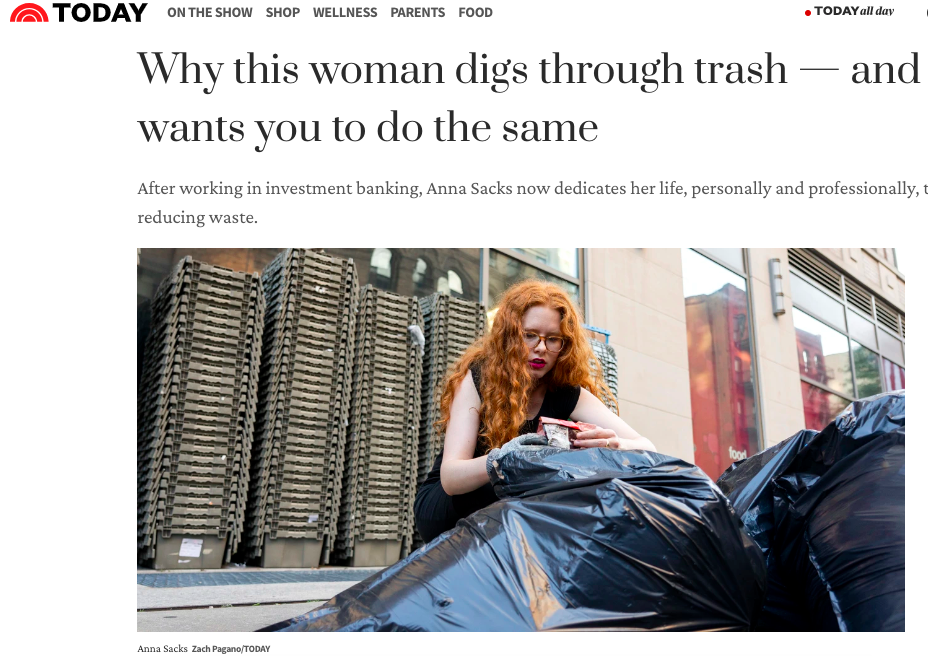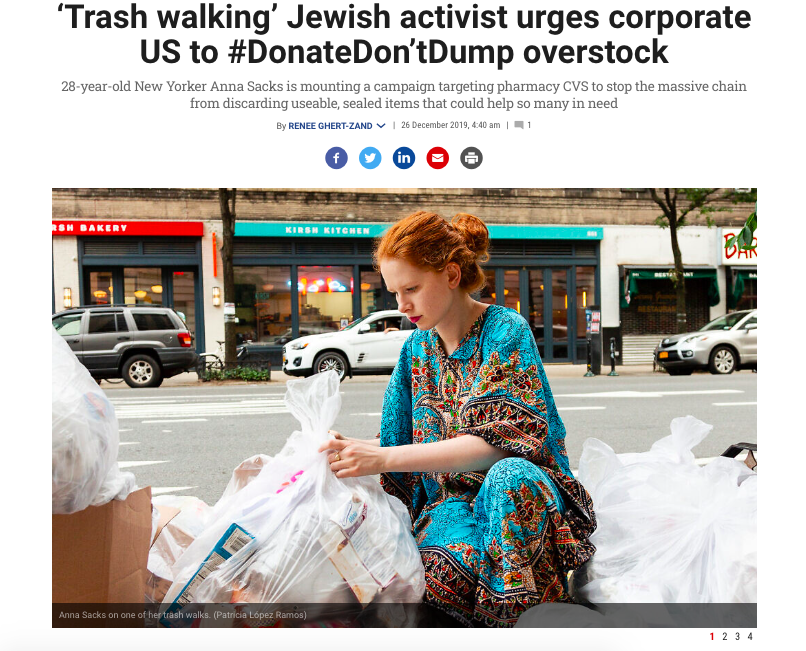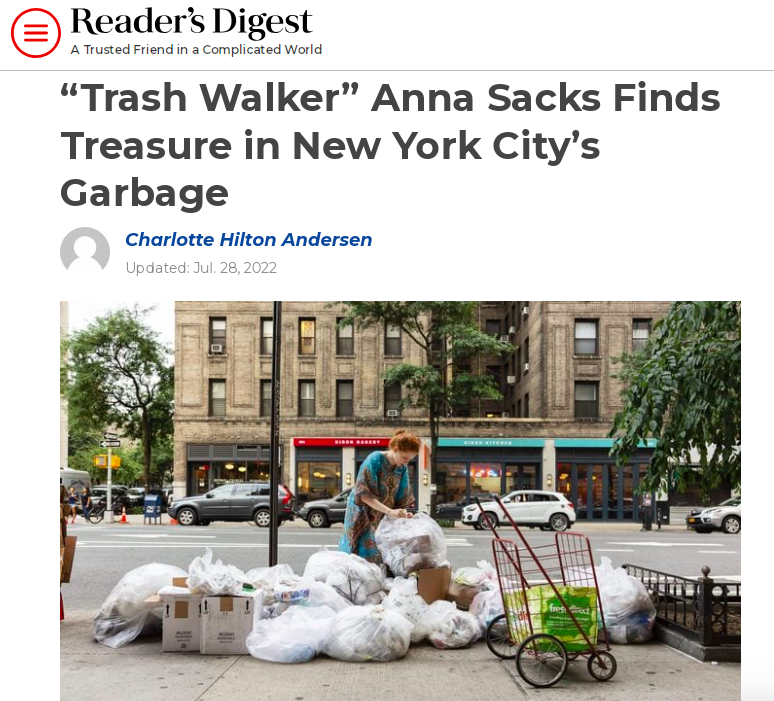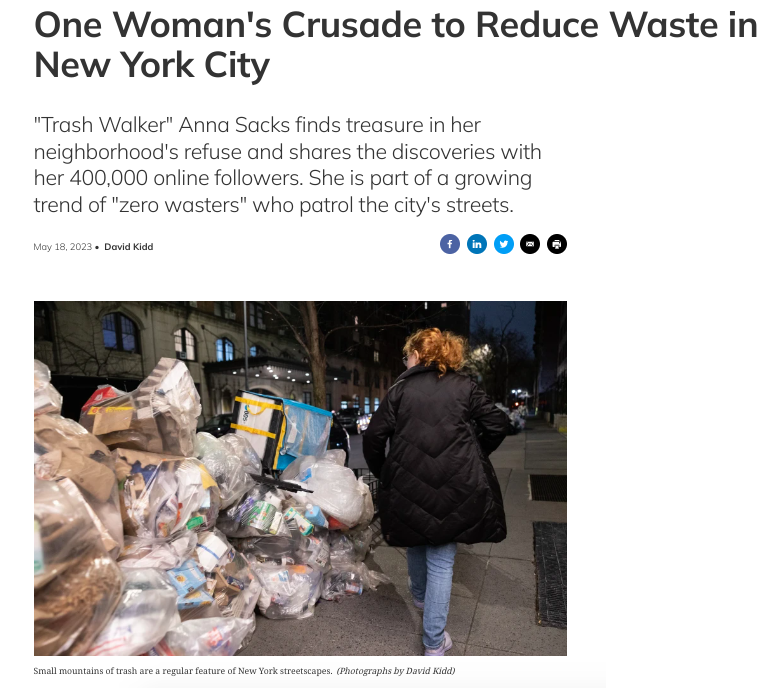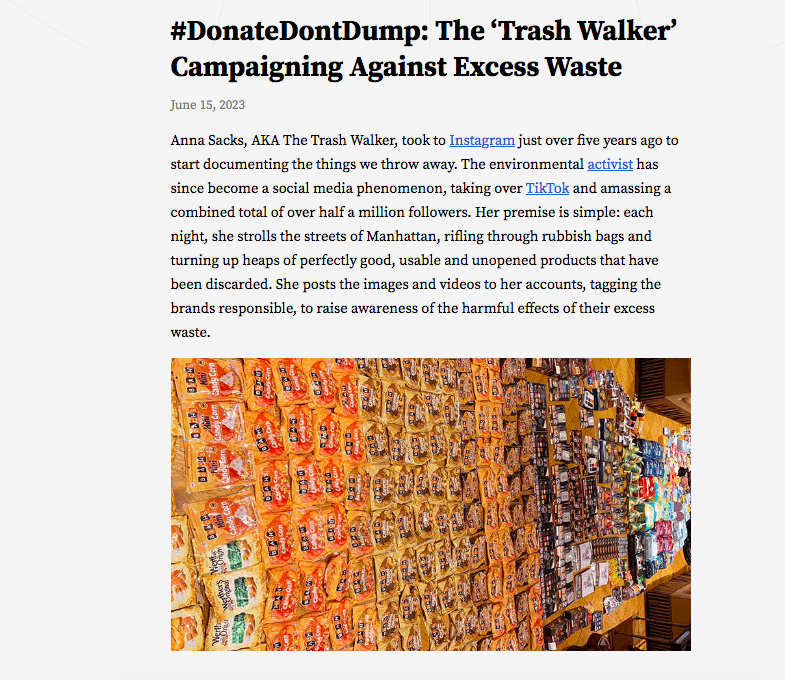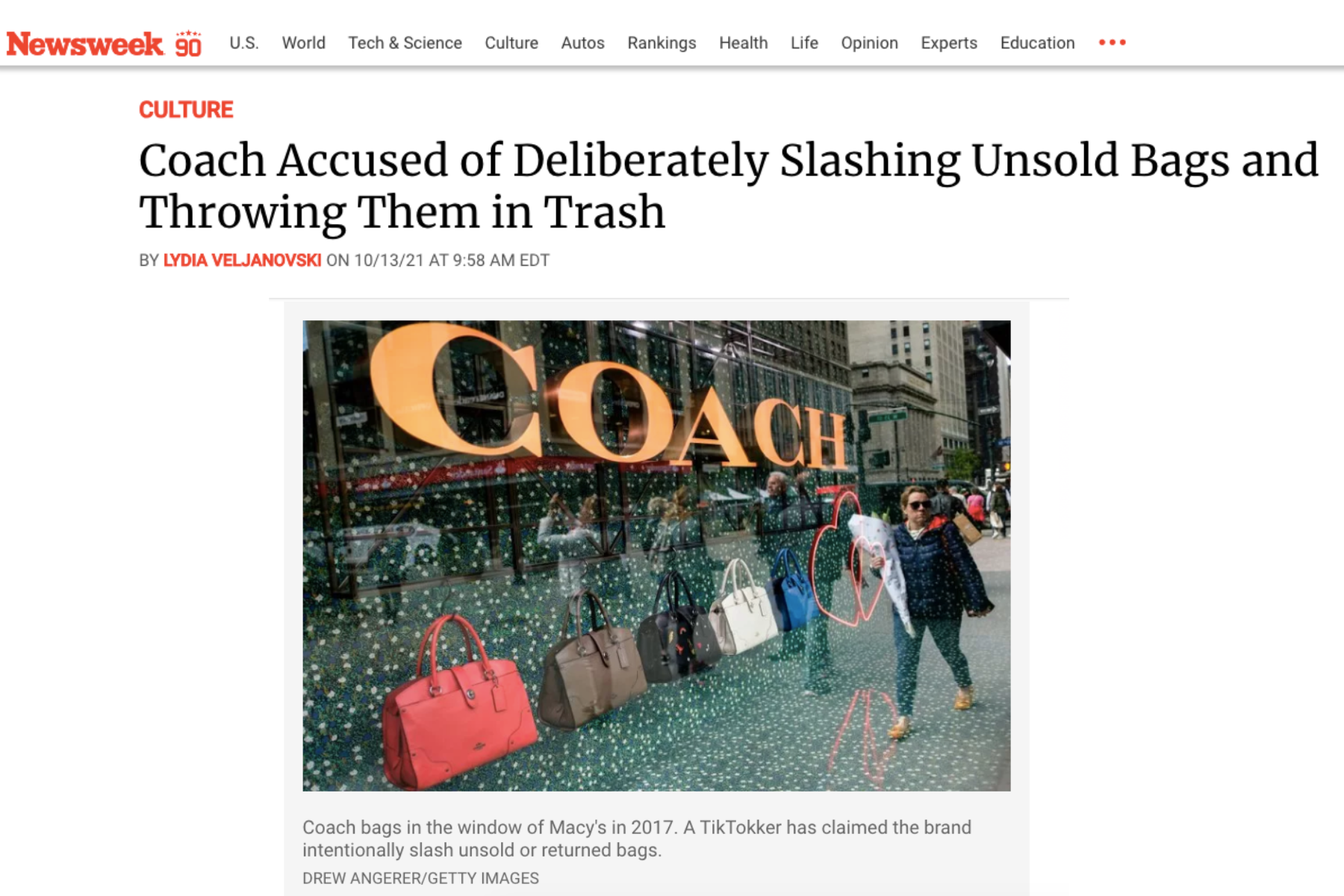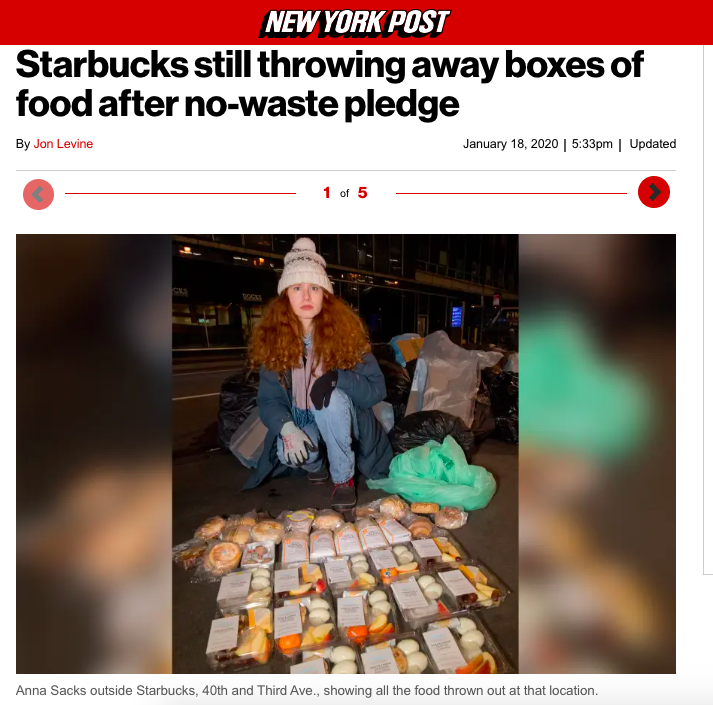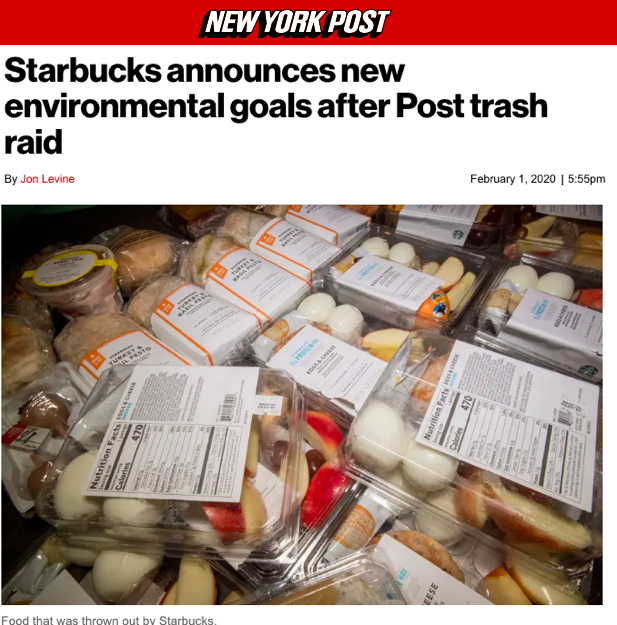Articles
The Guardian
The Guardian's 12th most-read article of 2021, receiving nearly 2 million page views.
“On social media and in real life, Sacks never seems to run out of patience, even when confronted with the scale and pervasiveness of the problem she is trying to solve: our culture of throwing things out, which leads to businesses and consumers alike producing untold amounts of waste. By rooting through the trash in the country’s most densely populated city, Sacks hopes to expose just how much of what we deem to be garbage really isn’t.”
The New York Times
“Activists like Ms. Wilson and Ms. Sacks would prefer to see retailers donate items to charitable organizations and others in need. ‘We should be incentivizing corporations ideally to produce less in general,’ Ms. Sacks said, but if that’s not possible, they should ‘donate or sell it through, or store it for the next year, rather than destroy it.’”
New York Post
“She’s airing corporate America’s trash online.
A New York City influencer is exposing the country’s decadent excesses by exhuming mountains of perfectly salvageable food and other goods from garbage cans in the Big Apple. Clips of her damning dumpster dives are amassing millions of views on TikTok and Instagram.”
Reader’s Digest
“‘One of the things that really stuck with me from Adamah, which means ‘Earth’ in Hebrew, was how little waste they produced and how they handled the waste they did have, primarily through composting,’ she says. ‘And I just thought, ‘Why aren’t we doing that here?’ I’d walk around my neighborhood and was shocked at how many bags of waste were piled up. I began to wonder, ‘What is actually in all those bags and recycling bins on the curbs?’”
Service95
“Large corporations routinely instruct employees to destroy usable, unsold products, so changing this practice would be no small feat. But Sacks reminds us that it would only be part of the solution. ‘The majority of emissions come upstream from the creation of the product,’ she explains. ‘It’s water use, land use, transportation across the world. That’s where source reduction [the elimination of waste before it is created] is the most important thing we can do.’”
Vogue Business
“Experts say it’s also impossible to fix the problem without addressing the root cause of overproduction, which Sacks says is fueled by brands’ need to report continuous sales growth and is the underlying motivation behind her social media campaigns. ‘Fundamentally, we need to be measuring what success looks like in a different way,’ she says.”
Newsweek
“The brand also state that they have now ‘ceased destroying in-store returns of damaged and unsalable goods.’
Speaking to Newsweek, Sacks described this as ‘a starting point’ but also went on to add that ‘they qualified the statement so it only applies to in-store returns, that doesn't mean they're going to stop destroying all merchandise.
‘So that's one portion of what they've been destroying I wouldn't say that's necessarily the largest piece of it.’
The activist believes that the brand should pledge not to destroy their unsold and unsellable items, not just those that are returned.”
Mic
“‘My ideal situation is for corporations to willingly change, just because it's the right thing to do,’ Sacks tells Mic. ‘But as I've seen with CVS, where I started this petition and it has over 400,000 signers — that hasn't been enough to get CVS to fully change. So I think in the absence you need some sort of external force, and that can be government regulation or consumer pressure.’”
New York Post
“After a New York Post investigation showing rampant food waste at company stores across New York City, the coffee shop empire has rolled out a new set of ambitious green goals.
Local activist Anna Sacks was encouraged by the announcement. ‘I think it’s great. I think that they should be setting these goals and working with experts and monitoring it and they should be transparent.’”


